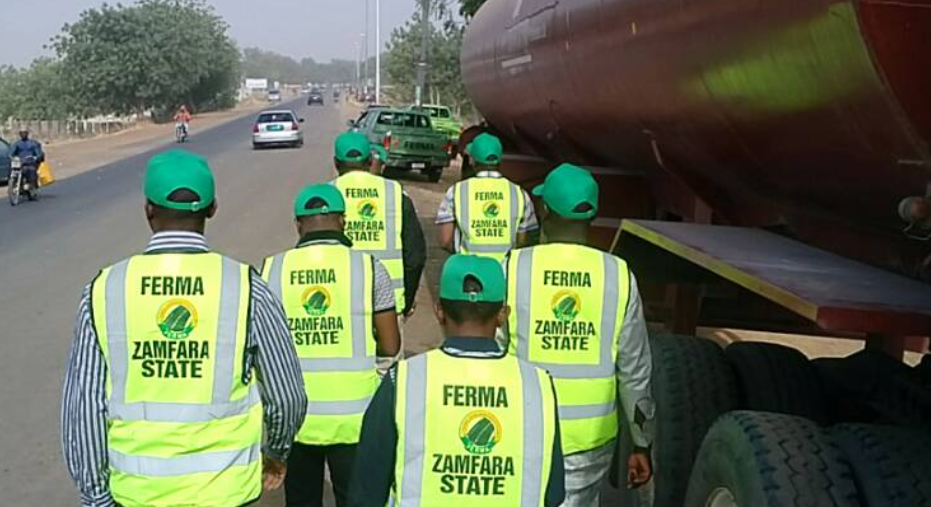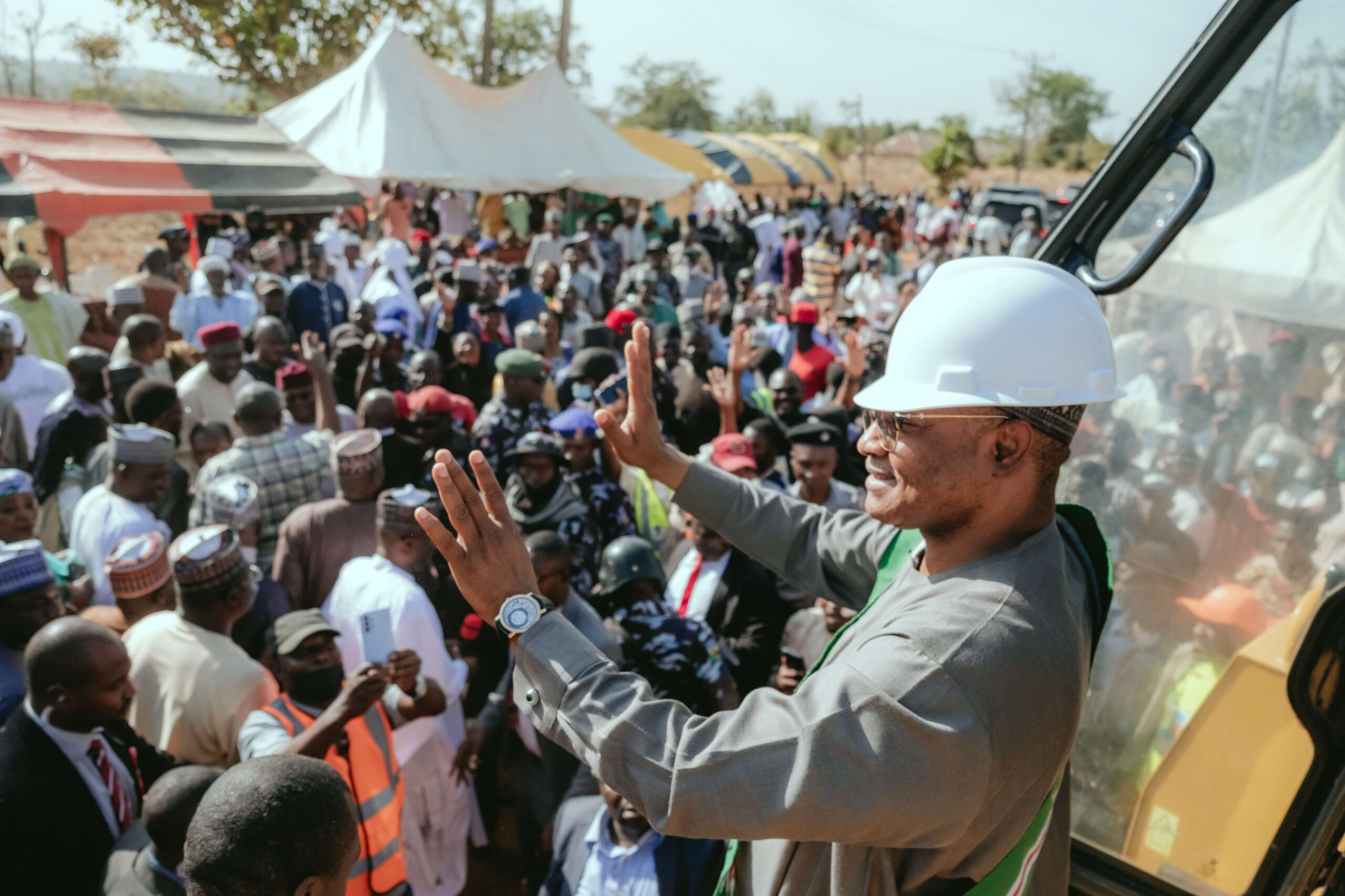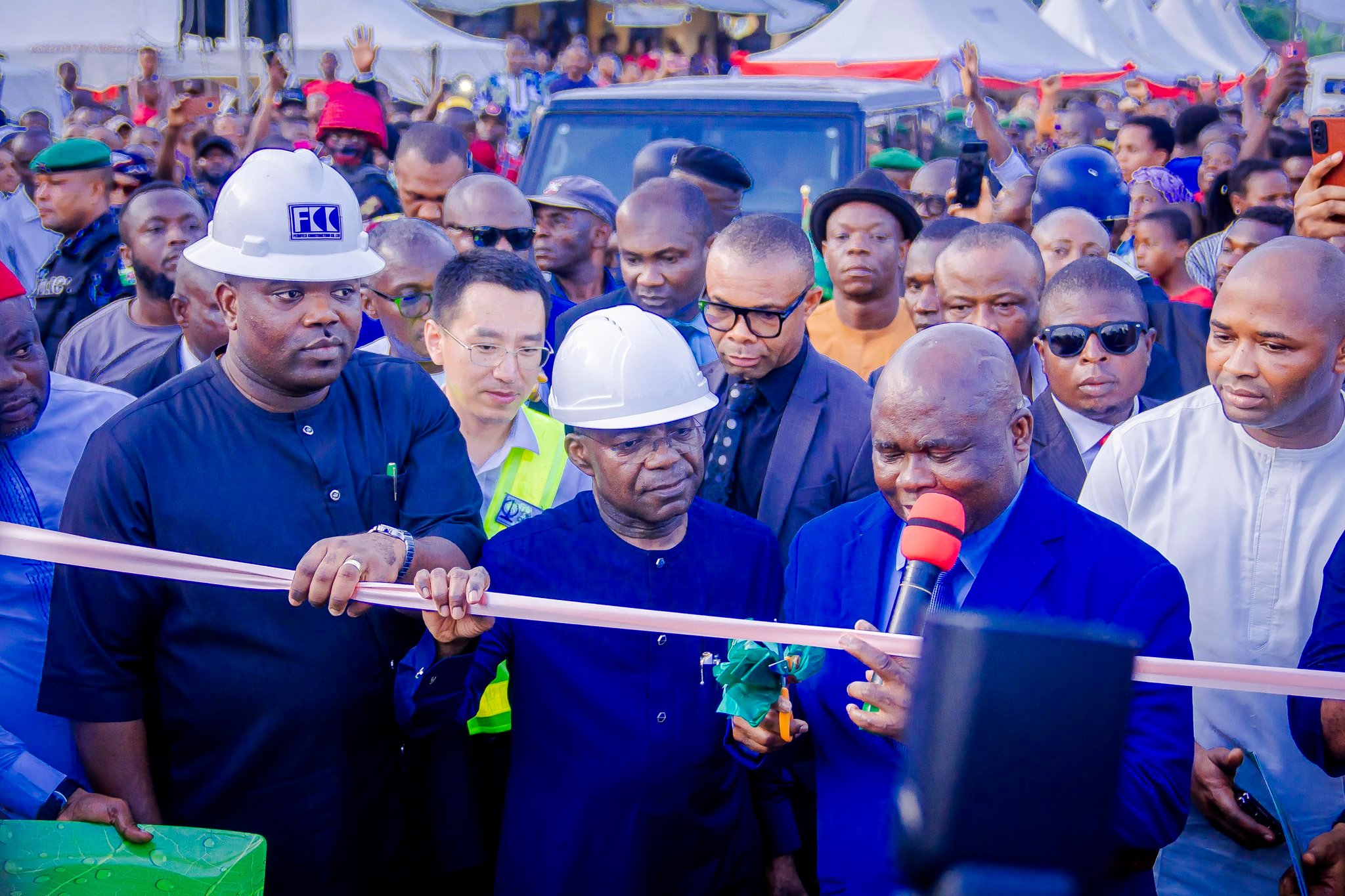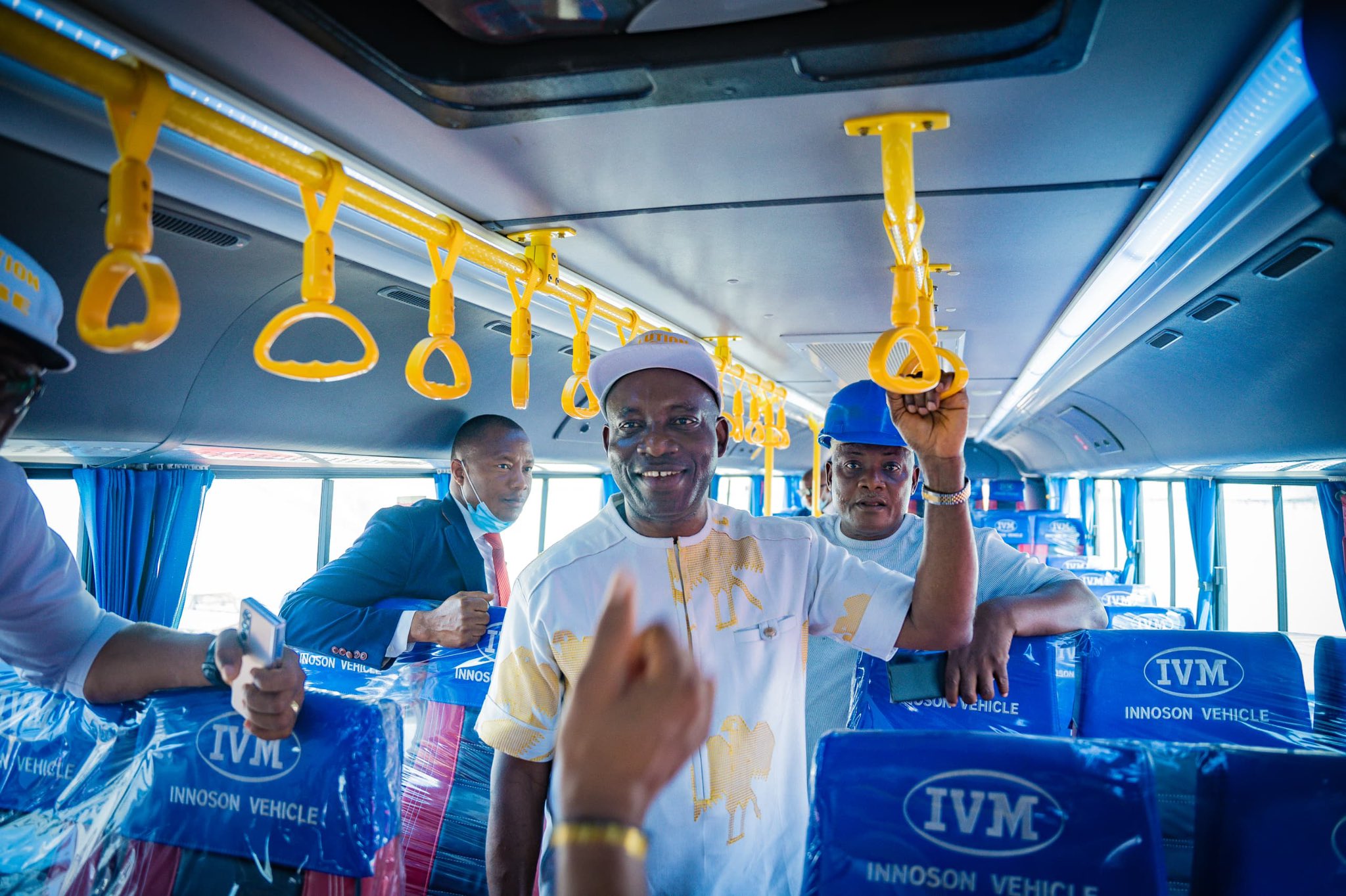In a proper democracy, the legislative arm of the government as an institution is regarded as the beacon of governance. This is because it is deemed the representative of the people who are elected into office to play the oversight role on the activities of the executive. To that end, they are expected to scrutinise the annual budget proposal by the executive arm of the government, to among other things, prevent any form of profligacy and ensure that every project billed for execution is people-oriented, consistent with, fiscal responsibility, and the yearnings and aspirations of the people.
That is why it is a democratic norm globally, that the president, or the prime minister, as the case may be, must as a matter of constitutional requirement, submit the budget proposal to the parliament, as an appropriation bill to be considered. It is subjected to the legislative process of law-making, after which it is passed into law, making it an act of the parliament, and gazetted. Thereafter, it becomes a document whose contents the executive must strictly and religiously adhere to throughout the financial year as they execute the projects contained therein.
So, following the submission of the 2024 appropriation bill to the national assembly, by President Bola Ahmed Tinubu earlier in December, there have been reports of requests from different quarters for certain heads and subheads on the expenditure side of the proposed budget to be reviewed (upscaled or downscaled). Those requests either come from heads of ministries, departments, and agencies (MDAs) or the legislators themselves.
Recently, tales of budget padding by members of the national assembly, at the committee level, shooting up the expenditure side of the proposed budget, abound. This is contrary to the spirit of the constitutional tradition of parliamentary scrutiny, aimed at checkmating any act of financial recklessness by the executives. The legislators are to checkmate any tendency for financial recklessness on the part of the executive arm of the government. But to the contrary, the executive appears to be more modest and prudent in the management of the Nigerian public finances, than their supposed watchdog, as the legislators turned out to be the ones whose financial recklessness needs to be more checkmated. They pad the budget, left, right and center.
Advertisement
In the 2023 appropriation bill, for instance, President Muhammadu Buhari submitted a budget (expenditure) estimate of ₦20.5 trillion, but the National Assembly, after passing, returned the document for presidential assent, with an increase of about ₦1.3 trillion, after serious padding—additions here and there. Some people have argued that inserting an entirely new item into the budget submitted by the president amounts to padding, and it is not in line with the spirit of representative democracy. They argued it amounts to usurping the function of the executive. But some Nigerians, especially, those involved in the act, see nothing wrong in that. Others argued that it is one of those nuances thrown up by our national peculiarities.
In the current democratisation experiment, we have witnessed some incidents of budget padding that almost rendered the appropriation law unimplementable. I could remember, sometime in 2009 or thereabout, during a budget defence session, at the Senate, a lawmaker rose to ask the minister (information and culture) whose ministry’s budget was under review at the time, whether he was planning to shut down the ministry because the budget proposal was too small in the senator’s estimation. He was suggesting, without actually saying it that, the minister should jerk up the ministry’s expenditure. He was expecting a humongous annual budget for items like furniture, as it is the practice in almost all the MDAs, even though, furniture is expected to last for a couple of years before being fully depreciated, and a request for another is made. But in Nigeria’s most government establishments, they make furniture a subject of recurrent expenditure. Another was when it was discovered that, money was budgeted for procuring generators for the Nigerian High Commission in the United Kingdom. The first question that came to mind was, who uses generators in the UK, like we do here in Nigeria, causing environmental pollution?
The irony of it all is that, in all the consideration (padding) of the 2024 budget, and the ones before it, none of our lawmakers has ever thought it wise to stand up for the Ministry of Works, especially on road rehabilitation to be undertaken by the Federal Road Maintenance Agency (FERMA). Considering the abysmal level of dilapidation of federal roads across the country, none of our lawmakers is responsive and empathetic enough to make a case for an increase in the allocation for FERMA as a response to the dilapidated state of our roads all over the country. So far, the only response that the death traps that we call federal roads across the country receive from our lawmakers is the purchase of rugged Sports Utility Vehicles (SUVs) to enable them to navigate the potholes-ridden roads that lead to their constituencies. This was a logic, stoically pushed forward during a television interview program with Ṣeun Okinbaloye on Channels Television, about a couple of months ago. This fellow, who happens to be the Senator representing me at the “Red Chamber”, is from a town that is located at the end of, arguably, the worst federal road in Nigeria; Kaaba-Egbe-Ilorin road. He pretended to have forgotten that, he would never give the people of the (Kogi West) senatorial district the opportunity of travelling with him in his SUV on the road. Not even his close aides. He never knew he could initiate an institutional move, through agencies like FERMA, to get the road and others, manageably fixed, pending the time of total reconstruction.
Advertisement
Meanwhile, the immediate past general secretary of the All Progressives Congress (APC), and a former Chairman of the Senate Committee on Appropriation, Senator Iyiola Omisore, says there’s nothing like “budget padding”, as it is the responsibility of the National Assembly to approve the yearly budget of the executive. Mr Omisore said this at a one-day citizens‘ town hall meeting on the 2024 appropriation bill organised by the House of Representatives in Abuja earlier in December. He said, “When you hear of padding, it is an embarrassment; there is nothing like padding. The president brought the budget, which is what we have now”.
Senator Omisore added that civil society organisations should know that there is nothing like “padding” in the Nigerian budgeting system. He further stated that “The budget as presented by the president means that the National Assembly has the power to look into it and see whether it satisfies Nigerians or not”.
What Omisore was saying in essence is that the legislature has the power, not only to downscale budgetary allocations for any project, proposed by the Executive but also to upscale the same if it is deemed key to the socio-economic well-being of the people. There’s nothing like ‘budget padding’, as it is the responsibility of the National Assembly to approve the yearly budget of the executive, according to the Ilé-Ifè High Chief. He also stated that “There’s nothing like budget padding – the budget as presented by the president means that the National Assembly has the power to look into it and see whether it satisfies Nigerians or not”.
Then, my questions are: why is nobody, among the legislators fighting for, the Federal Road Maintenance Agency (FERMA), to have its budgetary allocation in the 2024 appropriation bill increased, as it is the only federal government agency saddled with the responsibility of maintaining federal roads across the country? Or who is trying to pad the budget for FERMA? Do the lawmakers know that all FERMA has been doing all these years out of the about 35,000 kilometres of federal roads in the country, is like a drop in the ocean, and therefore needs to be more empowered, budgetarily? Is it that, since Senator Sunday Karimi and his colleagues took delivery of their imported SUVs, the rest of us (Nigerians) can go,” hug a Transformer”? Is Engr. Dave Umahi, the Honourable Minister of Works and Housing “on duty” at all, to make a case for the flagship agency under his ministerial supervision? Or is FERMA such an orphan agency that nobody cares for? If not, then who is responsible for the well-being of the orphan (FERMA) as far as the 2024 appropriation bill is concerned? Or is this some sort of elite conspiracy against the hapless masses, as inadvertently suggested by Senator Karimi’s vehement defence of the ill-timed, ill-conceived purchase of SUVs for federal lawmakers, rather than fixing the roads?
Advertisement
Out of a total capital of ₦453,255,980,966.00 allocated to the ministry in the 2024 appropriation bill, FERMA gets a paltry ₦17, 525,286,292.00.
Nigeria’s road network, which connects the entire country, stretches to about 195,000 km. Of this, barely 28,980 km (15%) is paved, and motorable in the real sense of the word. Compared to 80% in Malaysia and 13% in Ethiopia. A federal road like the Kaaba-Egbe-Ilorin which leads to Senator Karimi’s hometown, which is less than 240 kilometres, has stopped being motorable for over two decades now, especially, the Kogi part of it. But that does not seem to bother the lawmakers through whose constituencies the road passes. Kogi West, and Kwara South senatorial districts. Kabba-Bunu/Ijumu, and Yagba, Federal constituencies in Kogi State. And Ekiti/Irepodun/Isin/Òkè-Èrò, and Ifelodun/Offa/Oyun Federal constituencies in Kwara Kwara State. This (Kabba-Egbe-Ilorin road) is just one out of the numerous federal roads in Nigeria that could be described as being “very strategic” but failed. Ikot-Ekpene/Ittu/Calabar road at the time, another advertisement of a failed road system in Nigeria. Ilorin-Bida-Minna-Abuja is another. I am not going to even mention the popular Ọ̀rẹ́-Benin City-Asaba or Benin City-Warri-Port Harcourt road. These are strategic roads that need urgent attention from the Federal government in terms of rehabilitation or even reconstruction.
The collapse of most of these roads had contributed immensely to the astronomical rise in the cost of transportation in the country. For instance, Ilorin-Owerri which used to be ₦6000, now goes for ₦25000, while Ilorin to Port Harcourt, and Lagos, go for ₦30,000 (formally ₦8,000) and ₦11,000 (formerly ₦3000) respectively. Abuja, from Ilorin used to be ₦4,000, but it is now ₦15,000. From Ilorin to Kabba, a journey of not more than three hours (but now six to seven hours as one at this moment has to go through Ekiti State, before turning backwards at Omuo, towards Kabba again) used to cost ₦2,500, but now, it is ₦10,000. Imagine travelling from Lagos to Abuja, but having to go through Sokoto State before getting to Abuja. That is what you’d do if you were travelling from Ilorin to Kabba now. I recently embarked on a journey on the route, and had to spend 7 hours on the road, in addition to paying ₦10,000 that ordinarily shouldn’t take, and cost me more than 3 hours, and ₦3000 respectively.
While on the way, I initiated a conversation with the driver who was Lakota-Abuja-bound, and, ordinarily, should have no business with passengers going to Kabba, but had to allow me on board, because of the paucity of passengers. I asked him if the amount they charged for the trip had something to do with the high cost of fuel. He replied; “not exactly, Sir”. “If you look at it, we have to pass through Ekiti state, which is totally off route, coupled with the bad state of the road, which dilapidates the vehicle quicker than normal,” he explained. This means that, if the roads in Nigeria are in good condition, transporters would charge less than they currently do. And that would lead to a reduction in the prices of goods and services, and by implication, bring down a bit, the current rate of inflation.
Advertisement
Achieving this is not as complex as rocket science. All that most of these require is a well-funded FERMA to carry out regular, and serious maintenance services on those roads, and all other things would fall into place. But who is fighting for the “orphan”, FERMA?
As we seek answers to these questions, I say compliments of the season, and wish you a happy and prosperous New Year in advance! See you in 2024.
Advertisement
Abubakar writes from Ilorin. He can be reached via [email protected].
Advertisement
Views expressed by contributors are strictly personal and not of TheCable.







